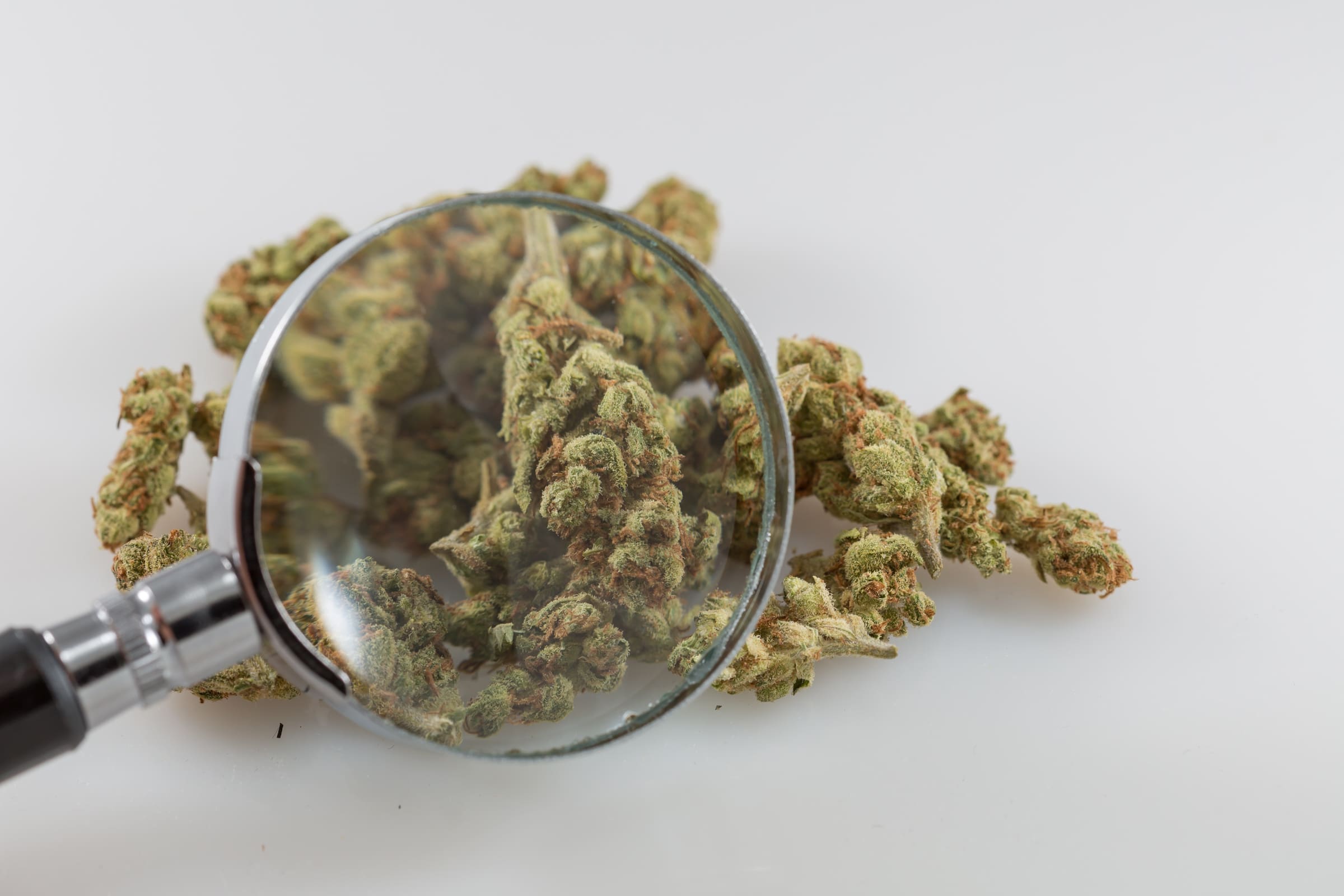Politics
Bipartisan Congressional Bill Would Create Centers of Excellence in Cannabis Research And Set A Federal Marijuana Science Agenda

Bipartisan congressional lawmakers have reintroduced a bill to set a federal marijuana research agenda and create a designation of “Centers of Excellence in Cannabis Research” for universities to carry out cannabis studies with federal grant money.
The legislation filed by Reps. Scott Peters (D-CA) and Dave Joyce (R-OH) on Friday is nearly identical to the version they filed last session—except that its title was revised to exclude a marijuana-related punny acronym, omitting the phrase “Developing and Nationalizing Key,” or DANK, from the “Cannabis Research Act.”
In any case, the measure would require the National Institutes on Health (NIH) to collaborate with other agencies, including the Centers for Disease Control and Prevention (CDC) and Substance Abuse and Mental Health Services Administration (SAMHSA) to develop “a national cannabis research agenda that addresses key questions and gaps in evidence.”
That agenda must include six primary research objectives. For example, the agencies must prioritize studies into the safety and efficacy of cannabis in the treatment of multiple conditions such as epilepsy, multiple sclerosis, chemotherapy-related pain and nausea, as well as the use of marijuana as an opioid alternative.
Other agenda items include research into the effects of cannabis on “at-risk populations” like children and pregnant women, the “nontherapeutic impacts” of marijuana, the relationship between cannabis use and behavioral health, the “clinically appropriate dosages and modes of delivery of cannabis” and other public safety considerations related to potency, youth access and misuse.
Under the legislation, federal agencies would also be mandated to work together to “carry out surveillance activities to collect population-wide data on cannabis use.”
There would be data collection related to the health outcomes, demographics, types of products and delivery methods and “other relevant health information to improve the understanding of cannabis use in all age groups and sub-populations.”
Further, the bill calls for data to be compiled from “public health surveillance systems, surveys, questionnaires, and databases of health care records” such as the federally funded Monitoring the Future health survey.
There’s a privacy provision attached to that section, stipulating that data collection must be conducted in a way that “protects personal privacy to the extent, at a minimum, that is required under applicable Federal and State law.”
The third section of the legislation would require the head of NIH to designate certain universities as “Centers of Excellence in Cannabis Research for the purpose of interdisciplinary research related to cannabis and other biomedical, behavioral, and social issues related to cannabis.”
Institutions interested in receiving that designation would need to submit an application to NIH that contains information about their research capabilities, ability to coordinate studies across different disciplines, personnel and facilities, qualifications for administering academic courses to train students and professionals on marijuana-related topics and state funding opportunities.
“In selecting institutions of higher education for designation as Centers of Excellence in Cannabis Research, the Director of NIH shall give priority to such institutions that have proven track records in medicinal cannabis research,” the measure says. The designations would be valid for five years, after which point an institution may reapply.
NIH would have the authority to issue grants or enter into cooperative research agreements with up to 10 Centers of Excellence in Cannabis Research, and they’d be able to distribute $50 million for each fiscal year from 2024 to 2028.
“The Director of NIH shall promptly disseminate research results under this subsection to relevant governmental, academic, and research entities,” the measure states.
Finally, the bill contains a section that’s meant to streamline the registration process for researchers at universities interested in conducting cannabis studies. Designated Centers of Excellence in Cannabis Research would also be protected against federal sanctions for obtaining marijuana from state-legal dispensaries for study purposes.
“In California, you can walk into a store and legally purchase a marijuana gummy to help you fall asleep, but a researcher can’t buy that same gummy to analyze its short- and long-term benefits and risks,” Peters said in a press release. “Our Cannabis Research Act clears the path for scientists, including those at the world-renowned UC San Diego Center for Medical Cannabis Research, to study cannabis without fear of prosecution. Our bill also importantly sets a national agenda to ensure all the Centers of Excellence are coordinated in their research.”
—
Marijuana Moment is tracking more than 1,500 cannabis, psychedelics and drug policy bills in state legislatures and Congress this year. Patreon supporters pledging at least $25/month get access to our interactive maps, charts and hearing calendar so they don’t miss any developments.
![]()
Learn more about our marijuana bill tracker and become a supporter on Patreon to get access.
—
The bill is substantively similar to a measure filed by Sen. Dick Durbin (D-IL) in 2019, as well as a companion measure introduced by some House lawmakers that year, but a key difference is that the earlier legislation also included a provision to move marijuana from Schedule I to Schedule III under the Controlled Substances Act (CSA). With the Biden administration moving to reclassify cannabis as a Schedule III drug, that provision may no longer be necessary, pending final rulemaking.
In December 2022, President Joe Biden separately signed into law a bill meant to streamline cannabis research, marking the first time that a standalone marijuana reform measure was enacted.
“Federal bureaucracy continues to create unnecessary obstacles for both researchers and growers in the cannabis industry,” Joyce, co-chair of the Congressional Cannabis Caucus, said. “To benefit patients nationwide and maintain America’s leadership in global medical research, we must eliminate outdated federal policies that hinder legitimate medical research. This bipartisan bill does just that by streamlining the lawful study of cannabis, supporting safer communities across the country.”
Morgan Fox, political director of NORML, said that “allowing researchers to more easily study the effects of cannabis products that human beings are actually using is absolutely vital to developing good public policy.”
“By giving institutions of higher learning the ability to establish research programs that can access products available in legal state markets with minimal red tape, Congress can provide policymakers with the information and tools they need to make laws and regulations that effectively promote individual and public health,” he said. “NORML is proud to support this legislation again and we urge members of Congress to expedite its passage without delay.”
Read the full text of the cannabis research bill below:
Where Presidential Candidate Donald Trump Stands On Marijuana
















